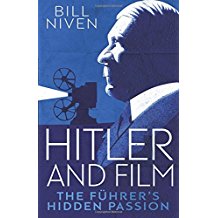2018 School Spending Survey Report
Hitler and Film: The Führer's Hidden Passion
Yale Univ. Apr. 2018. 312p. illus. filmog. notes. bibliog. index. ISBN 9780300200362. $30; ebk. ISBN 9780300235395. FILM
COPY ISBN
VERDICT Academic in tone but accessible to general readers, this is best suited for the cross-section of cinephiles and World War II buffs with a bent toward Hitler scholarship.
RELATED
ALREADY A SUBSCRIBER? LOG IN
We are currently offering this content for free. Sign up now to activate your personal profile, where you can save articles for future viewing




Comment Policy:
Comment should not be empty !!!